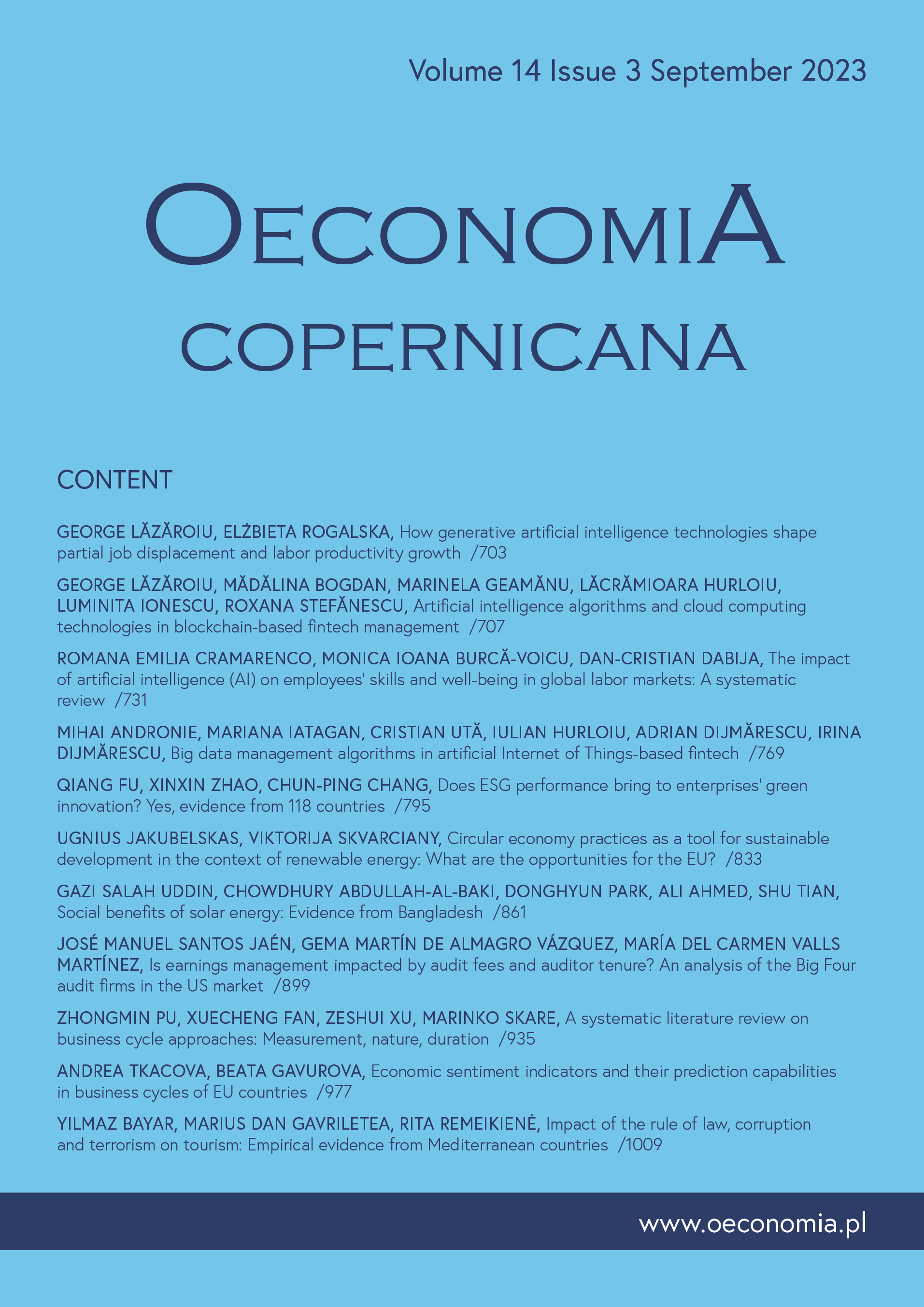Social benefits of solar energy: Evidence from Bangladesh
Social benefits of solar energy: Evidence from Bangladesh
Author(s): Gazi Salah Uddin, Chowdhury Abdullah-Al-Baki, Donghyun Park, Ali Ahmed, Shu TianSubject(s): Energy and Environmental Studies, Social development, Economic development, Environmental interactions, Socio-Economic Research
Published by: Instytut Badań Gospodarczych
Keywords: energy transition; solar adaption; clean energy, education; welfare; Bangladesh;
Summary/Abstract: Research background: The Bangladeshi government has set a plan to generate one-tenth of its electricity from solar and other renewable sources by 2030. Solar adoption surged in Bangla- desh up until 2015, setting a global precedent for electrifying areas that were previously un- connected. The enhanced lighting offered by solar systems provides immediate benefits, including additional hours for household and business activities and extended study hours for school-going children.Purpose of the article: This study seeks to identify the determinants and welfare gains of solar adoption in rural areas by analysing three rounds of the Bangladesh Integrated Household Survey from 2011–12, 2015, and 2018–19. In addition to presenting new estimates of economic, environmental, and educational welfare gains, our research offers insights into how solar adoption relates to rural employment and the nutrition of children under five.Methods: We utilized both ordinary least squares and propensity score matching techniques to estimate the welfare effects of solar adoption. Only households that do not use electricity as their primary lighting source, such as those relying on solar or kerosene, are considered in our sample.Findings & value added: We have discovered that adopting solar is linked to higher income, increased expenditure, and growth in asset value. Additionally, there is a significant reduction in kerosene expenditure among adopters compared to non-adopters. Other observations reveal that households with solar setups tend to transition from sharecropping to trading and poultry farming. Children in these households also benefit from solar adoption in terms of education and nutrition. This study illustrates how solar energy can effectively address vari- ous welfare concerns in areas where the government cannot supply electricity. Given that recent global events have rendered underdeveloped countries more vulnerable to providing consistent electricity to their entire populations, this research suggests solar energy as a resili- ent electrification solution during crises.
Journal: Oeconomia Copernicana
- Issue Year: 14/2023
- Issue No: 3
- Page Range: 861-897
- Page Count: 37
- Language: English

